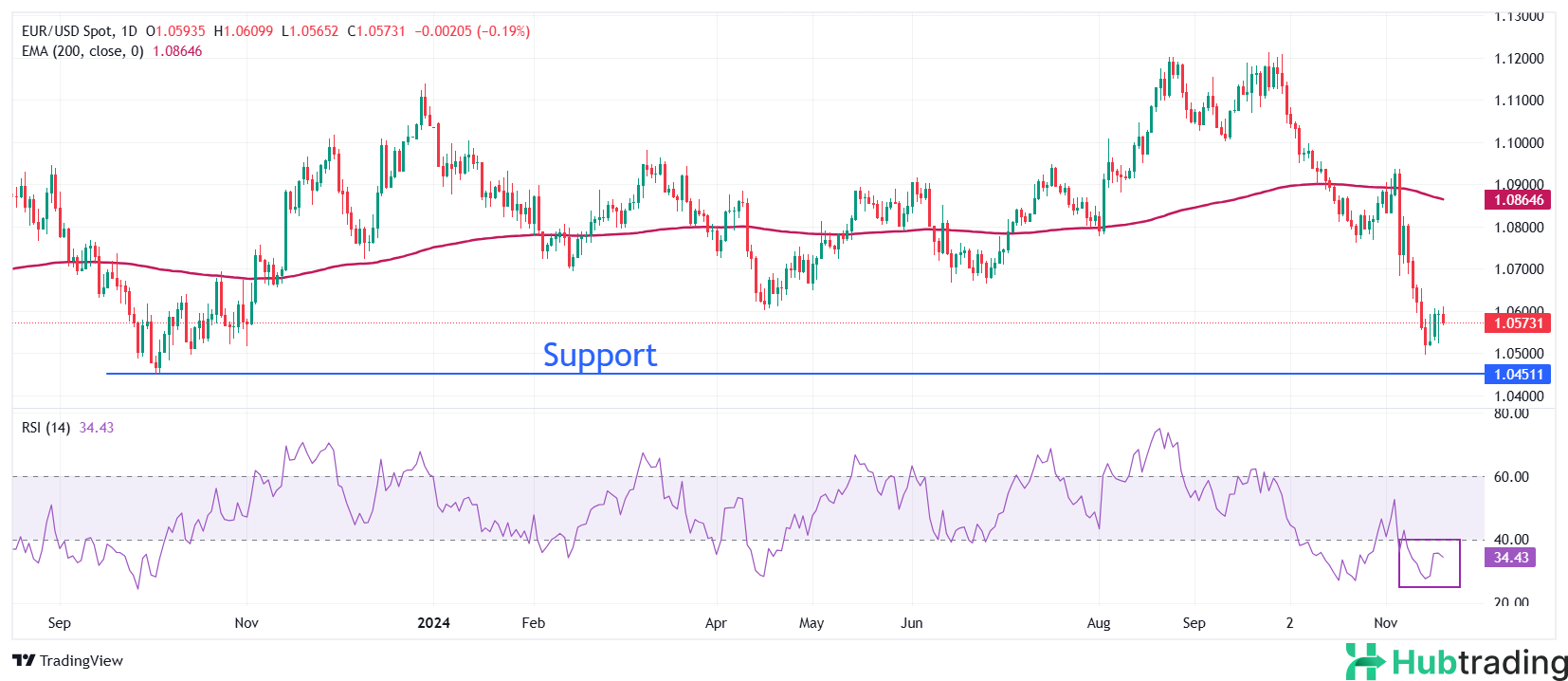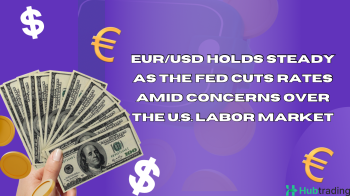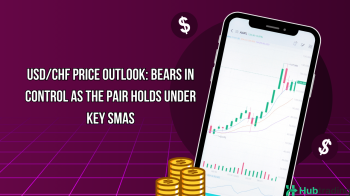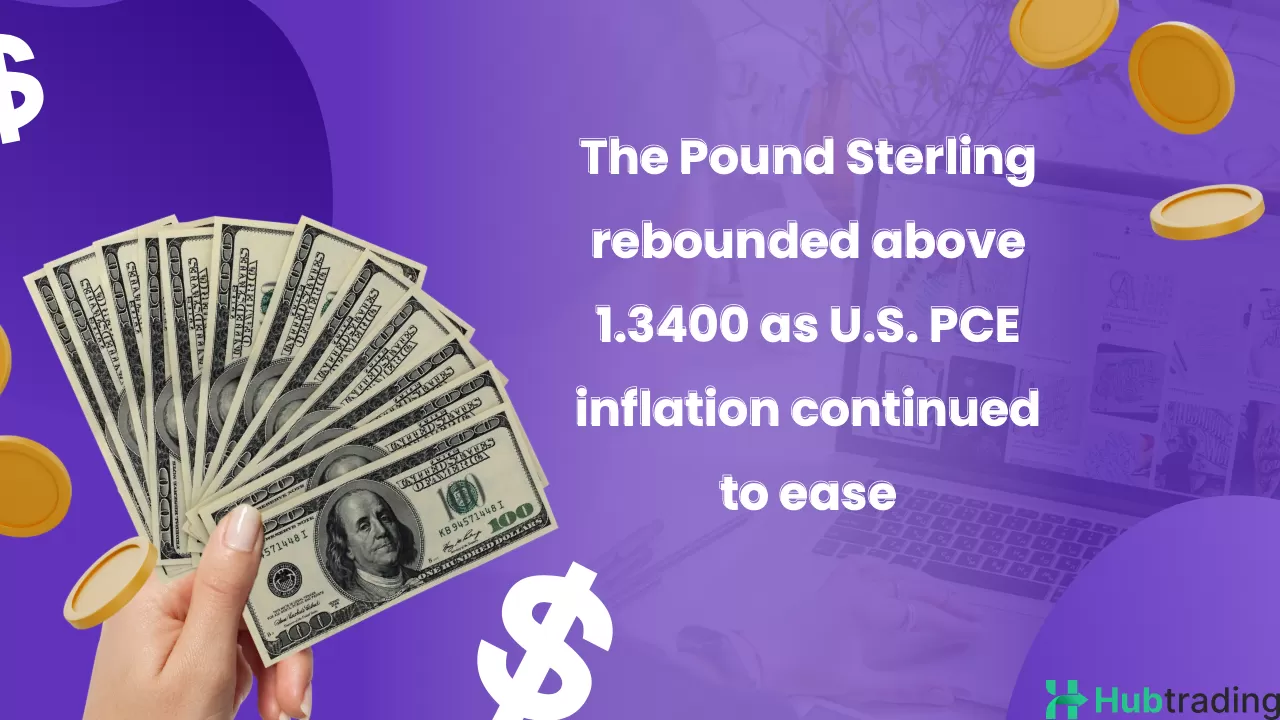- EUR/USD struggles near 1.0600 as ECB policymakers prioritize concerns over economic growth over inflation control.
- ECB’s Panetta advocates for an expansionary monetary policy to avoid inflation falling significantly below the bank’s target.
- Deutsche Bank predicts the Fed will cut interest rates in December, though it anticipates a tight decision.
EUR/USD remains under pressure near 1.0600, slipping to around 1.0560 during Wednesday’s European session. The pair weakens as the US Dollar (USD) rebounds sharply, driven by expectations of fewer interest rate cuts from the Federal Reserve (Fed) in its upcoming monetary policy adjustments.
The Fed’s cautious, data-driven strategy suggests a restrained approach to rate cuts, with market analysts anticipating a rebound in U.S. inflation and stronger economic growth. These expectations are bolstered by President-elect Donald Trump’s electoral victory in both houses, which is likely to enable smooth implementation of his economic agenda.
Trump has pledged to impose a universal 10% import tariff and reduce taxes, measures that would limit the Fed’s ability to pursue deeper rate cuts. For December, the Fed is projected to lower borrowing rates by 25 basis points (bps) to the 4.25%-4.50% range, though Deutsche Bank analysts describe the decision as a “close call.”
Meanwhile, the US Dollar Index (DXY), which tracks the USD against six major currencies, has bounced to approximately 106.30 from a recent low of 106.10. On Tuesday, the DXY exhibited significant volatility amid escalating tensions in the Russia-Ukraine conflict.
The USD gained safe-haven appeal in the European session after Russian President Vladimir Putin approved revisions to the country’s nuclear doctrine in response to Ukraine’s use of long-range missiles, reportedly supplied with U.S. approval by President Joe Biden. However, the safe-haven demand moderated later as Russian Foreign Minister Sergei Lavrov assured that Russia would "do everything possible" to avoid a nuclear war, as reported by Reuters.






